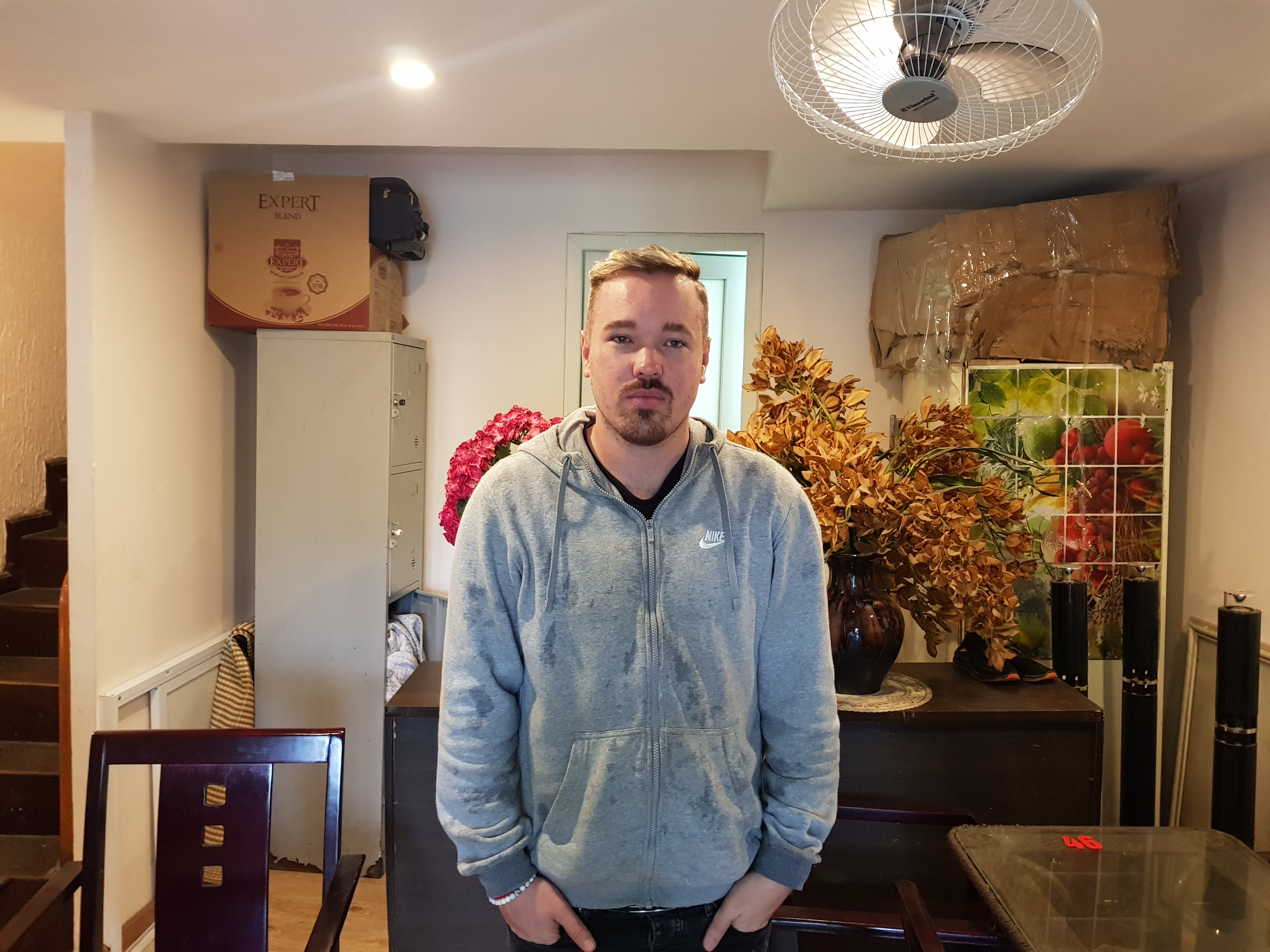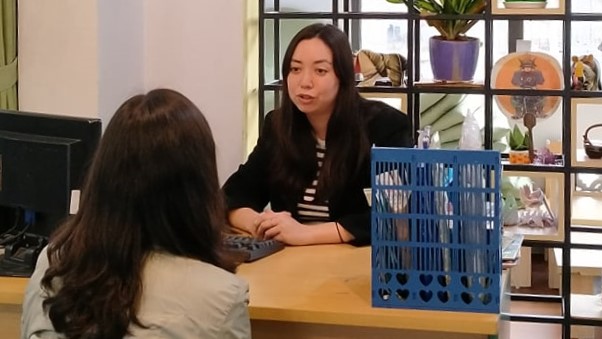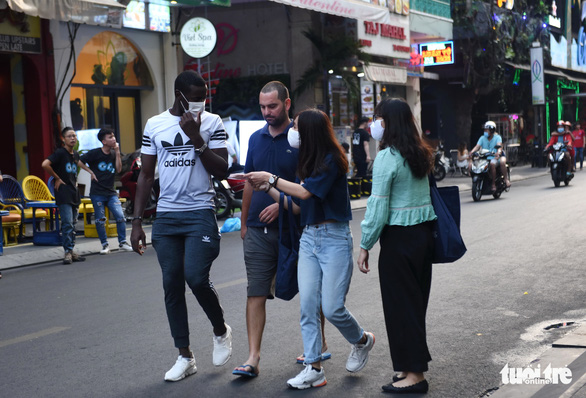Editor's note: Mark Barnes is a freelance journalist currently based in Hanoi, Vietnam. He sent this piece to Tuoi Tre News as the novel coronavirus disease (COVID-19) has caused schools in many parts of the country to close for over a month, through at least March 15. Language centers, which employ a large number of expats living in Vietnam, have also felt the impact.
A year ago this month, American traveler Megan Hellebuyck took her own life in Hanoi. Though speculation why is rife, the reason is still unknown. Suffice to say, her passing highlighted the staggering impact just being overseas, let alone moving overseas long-term, can have on a person’s mental health.
Indeed, mental health concerns among foreigners in Vietnam appear to be increasing. Most recently, this results from the financial stress of prolonged unemployment caused by the extended school break in the battle against COVID-19.
Richard Bradshaw-Booth, from the UK, who founded the Hanoi Mental Health Support Group (HMHSG), has noticed the rise in anxious young people attending his regular meetups and group sessions.
“A lot of people at the moment, because they're out of work, are struggling with financial anxiety ... Many use work as a coping mechanism so without work many feel lost or without purpose,” he says.
Bradshaw-Booth founded HMHSG earlier this year to meet a perceived need among Hanoi’s expat community.
“I suffered from mental health issues myself when I was younger and I tried to kill myself,” he says.
“I just didn't know where to go or who to speak to. I feel like if I had a format to speak, or for people to speak to, I would have felt so much better.”
Bradshaw-Booth’s ambition to create a safe space for open dialogue has been enthusiastically embraced with membership steadily increasing.

Australian qualified social worker and mental health professional, Xia Li Summerfield, says peer support groups are a great way to boost people’s mental health.
“One of the things that happen when we experience particularly high levels of anxiety or depression is that we tend to feel like I'm the only one feeling like this and that people are going to judge me or think like I'm not good enough,” she says.
“And they're wanting to isolate themselves either through not feeling up to social engagement or the pressure of stigma … Accessing those groups and seeking support from others can be really helpful even as just someone to hear how you are right now and to be with you.”
Summerfield points out that though many expats see moving overseas as a chance to reinvent themselves, the reality is that it can often be overwhelming.
“The problem is, I think, when people come here … the stresses of moving and being in a new environment, a new city and how chaotic the noise here can be when you first arrive kind of exacerbate pre-existing mental health issues,” Summerfield says.
A 2007 Expatriate Work-Life Balance Survey from ORC Worldwide found that there were five key ‘pressure points’ for expats that often led to mental health problems, including “the challenges of a new job, the inability to take part in activities available at home, the loss of a support network, language and other cultural difficulties, and the worker’s spouse being unable to find work.”
These factors can further compound the ‘financial anxiety’ already being experienced by Vietnam’s expat community.
Bradshaw-Booth says it can be like a ‘pressure cooker’ and group support sessions can be of great benefit.
“There's so much pressure building up and sometimes it's good to release that pressure and release those feelings,” he says.
Where support services are not possible, Bradshaw-Booth says that providing engaging and fun activities can also help members to stave off their mental health woes.
“A lot of our activities are just to give people things to do and take up that time that they now have a lot of … For me and many others, keeping busy and maintaining a healthy balance of work and social activities are extremely important.”
Summerfield agrees that a healthy lifestyle is a cheap and effective way of keeping mental health problems in check.
“Getting enough sleep, eating well, exercise, all these things that we would normally do to keep healthy are going to really help… especially to deal with the stress.”

A 2017 study by insurance company Aetna International titled 'Expatriate mental health: Breaking the silence and ending the stigma' found that 94 percent of people prior to moving overseas had not considered the impact it might have on their mental health.
They did, however, also find, between 2014 and 2016, a marked increase in mental health claims.
Aetna International’s study found that women were more likely to make a claim than men. This reflects a broader trend around the world of men failing to seek treatment for mental health problems.
“Many people I’ve met, especially men, don't like to talk about their problems,” Bradshaw-Booth says. “I would say predominantly most people in our group at the moment are female because they're more willing and open to speak.”
He believes men need less formal settings and more anonymity to talk about their issues.
But this can be difficult to come by in Hanoi and other one-on-one counseling services available to expats can be quite expensive.
A less attractive alternative, however, but one that could make the most substantial difference is to simply go home.
“If that’s where their support is and where there is a much more established kind of mental health support service, then they should think about it,” says Summerfield.
“But there is no real definitive answer to that. It’s really up to what resources the person has.”
“Reaching out, however,” she goes on, “is a great first step.”
Like us on Facebook or follow us on Twitter to get the latest news about Vietnam!



















































